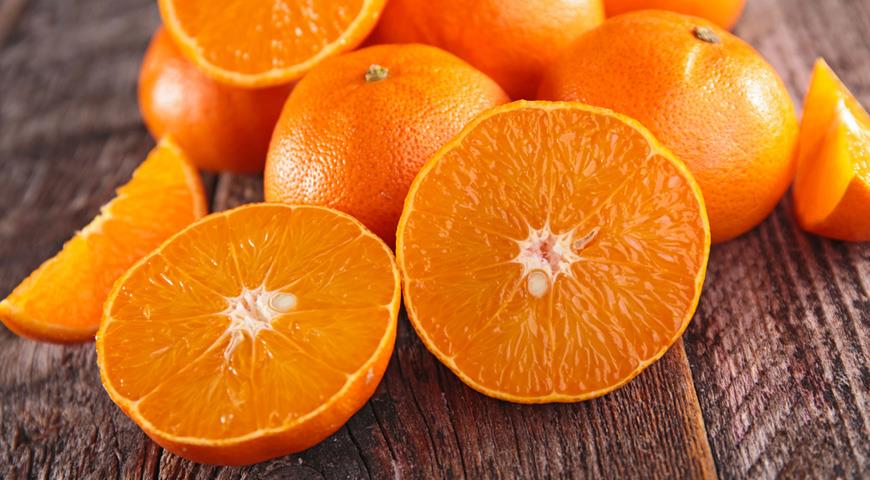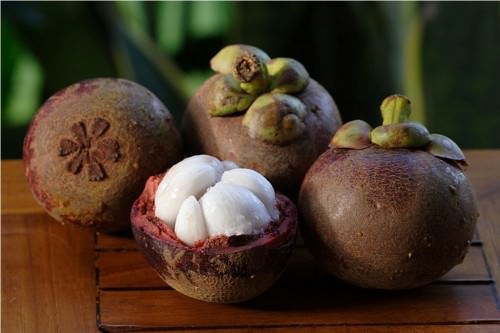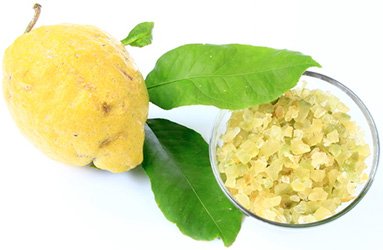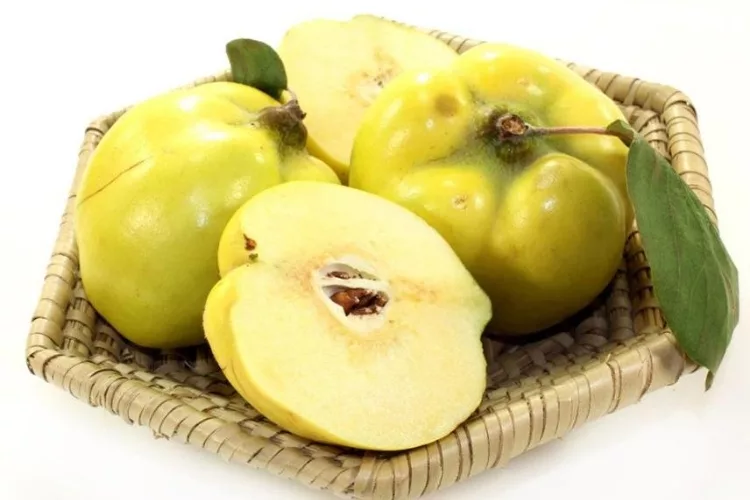14 Surprising Facts About Grapefruit
by Editorial Staff
Grapefruit is one of the few fruits that you love more and more over time. The point here, of course, is the bitter taste, which you learn to enjoy only with age, but awareness of the beneficial properties of grapefruit contributes. At the same time, there are many innuendos and opposed opinions around this citrus fruit. So, for example, supporters of the obligatory inclusion of grapefruit in their breakfast and those who recommend postponing its intake of food for at least a couple of hours after sleep cannot come to a compromise. We tried to understand this and many other issues, along the way, revealing almost two dozen unexpected facts about grapefruit.
- Bestseller No. 1
Facts About Grapefruit

- Grapefruit is 92% water, making it one of the most moisture-rich fruits on the planet. If we remember that a person gets up to 20% of the daily need for water from food, then the inclusion of just one grapefruit in his diet can significantly reduce the dehydration of the body.
- Eating grapefruit is directly linked to weight loss, but scientists cannot agree on whether this is due to its fat-burning properties or whether the effect depends on the low-calorie diet, which usually contains the fruit. On the other hand, grapefruit is definitely one of the top twenty fruits that delivers a lot of nutrients and moisture to the body with a minimum calorie content - only 39 kcal in one half!
- The white core and septa in grapefruit pulp are a treasure trove of antioxidants, nutrients, and soluble fiber that affect our feelings of fullness and blood glucose response. So, if you can, eat grapefruit whole, but without the skin, of course.
- According to a 2006 study, just one grapefruit a day for a month can reduce the level of harmful LDL-cholesterol in the blood by as much as 15.5% and by 27% in triglycerides. Good news for those looking for natural prevention of heart disease due to the accumulation of fat on the walls of the arteries. But if you are already taking medication to lower cholesterol, then grapefruit can only be added to your diet under the supervision of a doctor to avoid negative stimulatory effects.
- A shock dose of vitamins A (28% of the daily value in half an average grapefruit) and C (64%) in grapefruit, of course, will not completely prevent colds, but it will help to significantly reduce the risk of their occurrence and the time it will take for the body to fight disease.
- On average, systolic blood pressure is reduced by 5 points in those who eat grapefruit regularly, which means that they receive a sufficient portion of potassium from it, which neutralizes the negative effects of magnesium. Not so much, but as natural prevention of hypertension, it will do. Again, caution should be exercised by those already struggling with blood pressure with medication.
- Despite the general beneficial properties of grapefruits of all colors, it is the reds that are considered the most useful. Most often they contain more beta-carotene and antioxidants, among which lycopene, in fact, serves as the color identifier of the fruit.
- With 25 points on the glycemic index, grapefruit is among the top foods that help balance your meal if high GI foods are present: banana (48), white bread (72), or watermelon (72). That is, within two hours after eating grapefruit and anything else sweet, there will be a lower insulin spike in the blood than there would be without this citrus.
- Even though grapefruit juice contains the same set of vitamins and nutrients as whole fruit, the latter is still healthier for the body. It's all about the fibers lost during the squeeze and the increase in sugar levels. The recommended doctor's rate of such juice is 180 ml.
- Another property of vitamin C-rich grapefruit (about 72 mg in one large fruit) is to stimulate the healing of body tissues and the growth of new blood vessels. Many surgeons even advise patients to take an increased dose of this vitamin before surgery, and a preliminary consultation will not hurt you if you suddenly decide to suck on vitamin C.
- The presence of a large number of antioxidants always has a great effect on the reputation of a product in the fight against cancer cells. In grapefruit, on the other hand, compounds that reduce inflammation and "repair" DNA work for this, as well as fibers that prevent cancer of the rectum and esophagus.
- Grapefruits are most useful if their temperature is at room temperature. Only in this case, they become as fragrant and useful as possible, but if you plan to eat the fruit, not today or tomorrow, then it is better to put it in the refrigerator, where it can be stored for up to 2-3 weeks.
- Citrus aromas have always held a special place in perfumery. On the other hand, grapefruit acts as a real simulator of vital activity, giving strength no worse than the aroma of coffee. So grapefruit-scented essential oils are a must for those who want to constantly feel awake.
- Grapefruit is most often associated with breakfast, but don't let that put you in a box. This fruit goes well with the main course, especially if it is paired with protein and fats, which will further prolong the feeling of satiety.
 Also Like
Also Like

Clementines are a hybrid of an orange and a mandarin, and this variety was bred by the French priest and breeder Father Clement, after whom the exotic fruit got its name. Externally, clementines are similar to tangerines with one difference – there are pr...

10 Interesting Facts About Arugulas
Indau, eruka, rocket, sowing caterpillar – this plant has many names, but whatever you call it less useful for health, it does not become from this. Arugula has a pleasantly bitter flavor that can add a spicy taste to any dish. Many who have tried it once...

10 Interesting Facts About Asparagus
All over the world, spring is considered the season of asparagus, when the first young juicy shoots appear from the ground. In our country, you don’t even have to look for local asparagus in the markets – you need to grow it (and it doesn’t grow in one ye...

10 Interesting Facts About Broccoli
There is more vitamin C in broccoli cabbage than in lemon, A – almost as much as in carrots, and the rest of the trace elements are certainly not less than in related vegetables of the cabbage family. It should be treated with caution by those who have in...

10 Interesting Facts About Cauliflowers
Cauliflower is superior to all other varieties in taste and nutritional content. What do you know about Cauliflowers? We will tell you 10 interesting facts about him, and if you have something to add, be sure to leave your comment under this post! Caulifl...

10 Interesting Facts About Dills
Many people actively use dill when preparing a wide variety of dishes; this seasoning is considered truly universal. What do you know about Dills? We will tell you 10 interesting facts about him, and if you have something to add, be sure to leave your com...

10 Interesting Facts About Fennels
Not the most frequent guest in our kitchens, but his every appearance should be noted. What do you know about Fennels? We will tell you 10 interesting facts about him, and if you have something to add, be sure to leave your comment under this post! The ho...

10 Interesting Facts About Garlic
Many doctors recommend eating garlic, in the absence of contraindications, of course. This is an extremely useful product, notable for the fact that when cooked or dried, it retains a significant proportion of useful substances. What do you know about Gar...

10 Interesting Facts About Greens
We know vegetables and greens are good for you. But what exactly is their strength and why are they so important in the daily diet? After examining the opinions of people leading a healthy lifestyle, we are a selection of 10 interesting facts. What do you...

10 Interesting Facts About Lettuce
Lettuce is known all over the world and has been actively used since the 20th century. People can grow lettuce on their own to consume its leaves or stump. It should be noted that lettuce varieties such as Roman are produced mainly in Europe (in the Medit...

10 Interesting Facts About Parsley
Even the usual seasoning can harbor a lot of unusual things. What do you know about Parsley? We will tell you 10 interesting facts about him, and if you have something to add, be sure to leave your comment under this post! Did you know that there are curl...

10 Interesting Facts About Pumpkins
Orange, juicy, bright, tasty, useful! Pumpkin is a real symbol of autumn. And what do you know about pumpkins? We will tell you 10 interesting facts about pumpkins, and if you have something to add, be sure to leave a comment under this post! In fact, the...

12 Interesting Facts About Daikon
Due to the high content of vitamins, daikon strengthens the immune system, and its phytoncides kill microbes. Daikon removes excess fluid from the body, cleanses the liver and kidneys, stimulates the stomach and intestines, and is even able to dissolve ga...

12 Interesting Facts About Mangosteen
We have already written about dragon fruit – one of the most popular fruits in Southeast Asia, especially in Thailand. We decided to continue the series of notes dedicated to fruits, which can be seen in abundance on Thai food stalls. The turn of mangoste...

12 Interesting Facts About Mustard
Mustard is an annual plant that grows up to 60 cm in height. The bright yellow flowers form seed pods, each containing about 6 seeds. What do you know about Mustard? We will tell you 12 interesting facts about him, and if you have something to add, be sur...

Citron is a rare fruit that belongs to the citrus family. At the moment, it grows only in some rather limited areas. Theophrastus, Virgil, Martial also spoke about this fruit, it is also mentioned in the Bible. The history of the origin of this citrus tre...

Guava is an evergreen plant of the Myrtle family, which includes about 100 species. This plant is native to the tropics of South America, but today it is grown in other parts of the world. The guava fruit is widely used for making desserts. Guava fruits a...

13 Interesting Facts About Beans
Many dishes contain beans, and in some countries, they are an integral part of the national cuisine, for example, in Mexico. What do you know about Beans? We will tell you 13 interesting facts about him, and if you have something to add, be sure to leave ...

14 Fascinating Facts About Chaenomeles
Japanese quince, or Japanese Chaenomeles, is a representative of the Plum subfamily, the Pink family, of the order Rosaceae. Japanese quince is small in height (grows from 1.5 to 4 m) with falling leaves (rarely semi-evergreen) bush or low tree, which is ...

14 Interesting Facts About Basil
Basil is considered an Indian spice and is used as a condiment in many cuisines around the world. What do you know about basil? We will tell you 14 interesting facts about him, and if you have something to add, be sure to leave your comment under this pos...
Comments for "14 Surprising Facts About Grapefruit"
 |
 |
 |
 |
Get FREE Recipe Gifts now. Or latest free cooktops from our best collections.
Disable Ad block to get all the secrets. Once done, hit any button below
 |
 |
 |
 |
